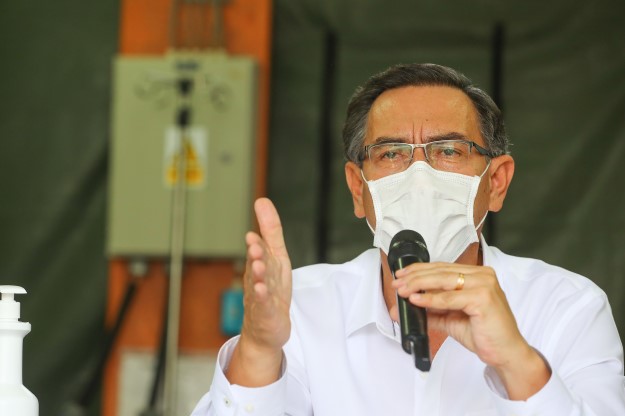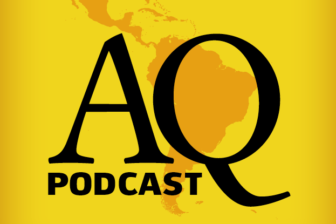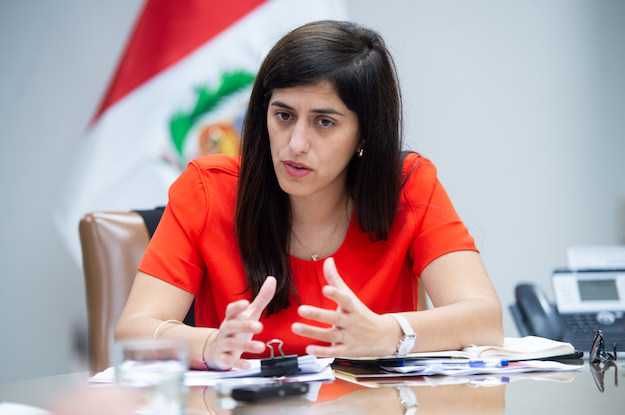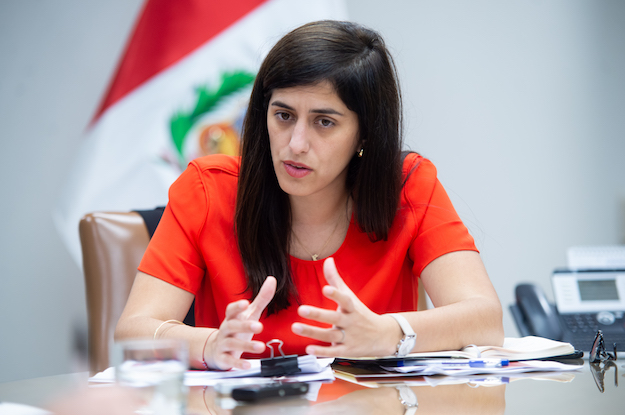LIMA, Peru – It took me 10 years of living in Lima and the coronavirus lockdown to finally tour downtown on my bike.
As anyone who knows this chaotic and heavily congested city can attest, drivers here are among the most impatient and reckless in the Western Hemisphere, and a huge deterrent for those limeños who want to get around on two wheels.
But now, with private vehicles banned from circulating and combis grounded for lack of customers, cycling without risking life and limb finally feels possible. Yet this transformation in the Peruvian capital’s urban landscape may, in part, stick even after the pandemic is over.
In an attempt to get people out of the rickety, overcrowded buses and minivans in which most of the city’s residents travel – and which provide the perfect environment for community transmission of the coronavirus – the administration of President Martín Vizcarra is proposing various measures to promote cycling, including doubling Lima’s cycle-paths from 145km to 301km.
The idea is one of a series of reforms that used to be dismissed as not politically possible to implement but which, propelled by the pandemic, appear to be gathering momentum. Others include a “wealth tax,” now being openly discussed by ministers, the mass release of prisoners from the country’s overflowing jails, a law to regulate and encourage working from home — a practice that has previously been slow to catch on in Peru — and a requirement that food apps actually hire their delivery personnel.
It remains to be seen which, if any, of these measures become law. But the fact that they are even being openly discussed by the government represents something of a tectonic shift in a society whose politics have long been dominated by what the Harvard political scientist Steven Levitsky has dubbed the “Lima consensus,” the ultra-conservative creed of free market capitalism antagonistic to labor rights, regulation and even the notion that a state might sometimes need to intervene in the economy.
This philosophy has seen what Levitsky calls “miserly” levels of social spending in Peru, now an upper-middle income country, and one of Latin America’s weakest states, a problem that has manifested itself in numerous ways, including a historic absence of urban planning. It has also arguably contributed to the inadequate response to Peru’s rising levels of violent crime, creating a vicious circle of public demand for draconian punishment and failed enforcement.
Favored by Peru’s economic elite, this ideology has also been broadly accepted by a large swath of the electorate whose worldview remains heavily influenced by the disastrous, leftist 1985-1990 first presidency of Alan García, when Peru descended into economic collapse and hyperinflation.
Perhaps the most controversial proposal is the wealth tax, which is how most experts have interpreted some of Vizcarra’s recent comments about the need for more affluent citizens to show “solidarity” during the crisis.
The remarks came as his government requests emergency powers from Congress to legislate fiscal policy by decree. The president subsequently insisted nothing has yet been decided, while his prime minister, Vicente Zeballos, then floated the idea of a special pandemic levy on those earning more than 10,000 Sols (nearly $3,000) a month, effectively an increased income tax on the upper-middle-class.
Nevertheless, the cat is out of the bag, with Peruvian media giving extensive coverage to the idea of a wealth tax.
Plenty of economists have claimed that the measure, while potentially popular, would actually raise little money. One of them is Alfredo Thorne, a former economy minister and cabinet colleague of Vizcarra. Most of Peru’s great fortunes are registered outside the country, he warns. Meanwhile, any tax on property could constitutionally only be levied by the municipalities.
“This feels political,” Thorne said. “Because of the pandemic, people are going hungry. This helps the government avoid being outflanked on the left.”
The economy is expected to shrink significantly this year, although there is little agreement on precisely how much. Meanwhile, the Vizcarra administration has launched a package of economic proposals worth $26 billion, roughly 12% of Peru’s GDP.
Vizcarra has been widely praised for his early, decisive steps in confronting the pandemic, implementing one of Latin America’s strictest lockdowns on March 16, when COVID-19 cases were still in single digits here.
But since then, the pandemic has taken off in Peru, with new cases now averaging around 3,000 a day as the government struggles to impose order in the overcrowded street markets where many ordinary Peruvians buy their food and which appear to be centers of contagion. Yet with many going broke or hungry here, a phased reopening of the economy is due to begin on May 11.
Another potentially significant coronavirus-induced change that may be on the way could be the release of thousands of convicts and defendants from Peru’s bursting-at-the-seams prison system. Currently, the country has nearly 100,000 prisoners in a system built for 39,000. Roughly 40% of them have yet to be tried, with many judges here being accused of overusing pretrial detention. There have already been several COVID-19 deaths and riots from terrified inmates.
In a country where public safety and violent crime have long been among citizens’ top concerns, prisoner welfare could hardly be a lower priority. But force majeure created by the public health crisis is prompting a rethink that could finally see the prison population being drastically reduced.
Several thousand prisoners have already been released, notably including Keiko Fujimori, who was runner-up in the last two presidential elections and was in pretrial detention for alleged money laundering. But there are increasing calls for more radical action, including from Amnesty International. Supreme Court judge Cesar San Martin is now among the voices calling for more drastic measures, in his case a new law to free up to 20% of all prisoners.
Peru has a long road ahead to mitigate and recover from the coronavirus’ human and economic toll. But if early signs are anything to go by, the “new normal” here could involve a shifted center of political gravity, towards a series of public policies traditionally associated with the left.







